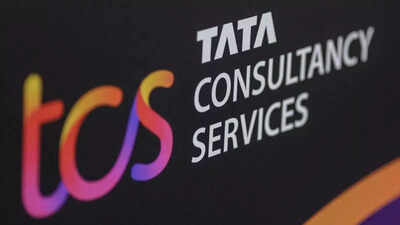
A claim that Tata Consultancy Services (TCS) fired 80,000 employees recently caused a wave of panic online. Social media posts spread the number fast, leaving employees anxious and uncertain. TCS quickly clarified that the actual layoffs were around 12,000, or roughly 2% of its workforce. By then, the rumour had already taken hold.This is not an isolated incident. Across the world, tech companies are trimming teams. Accenture, Microsoft, and other IT giants have also announced major cuts. Many of these moves are linked to restructuring and the growing role of artificial intelligence in business operations.
The TCS layoff confusion
Earlier this year, TCS announced layoffs affecting roughly 12,000 employees. The company said the decision was part of a restructuring effort and tied to AI integration.Soon after, posts claiming 80,000 employees had been laid off went viral. Reports suggested severance packages ranged widely, from 18 months’ salary to none at all. TCS called these claims “incorrect and misleading,” reiterating that only 2% of the workforce was impacted.Even when misinformation is corrected, the anxiety often remains. Teams become tense. Productivity drops. Employees spend energy worrying about who might be next. Stress shows up in both mental and physical health, and it can linger for months.
Global trends in tech layoffs
The TCS case is part of a larger pattern. Companies across the tech sector are reshaping their workforces to match changing business priorities.
- Accenture cut over 11,000 jobs globally. The layoffs affected employees who could not transition into reskilled AI roles. The company said it would continue hiring in areas aligned with new business priorities.
- Microsoft laid off around 9,000 employees this year. A large share of these cuts happened in early July. The company said the layoffs were part of a broader workforce realignment, even as it invests heavily in AI and automation.
These layoffs are not isolated. Automation, AI, and evolving business needs are changing how work is structured. Across the globe, tens of thousands of employees are left uncertain about their future.
The human impact of layoffs
Layoffs are more than just numbers on a chart. Employees who remain often feel the weight of uncertainty. Stress builds. Energy dips. Even routine tasks can feel overwhelming. Creativity slows. Decisions take longer. Trust in the company can falter.The ripple effect extends beyond the office. Families feel financial pressure. Friends and communities notice the tension. Even employees who keep their jobs often carry a constant worry about what comes next. Conversations at work and at home are tinged with anxiety. Focus and productivity can take a hit.
How employees can cope
Facing layoffs or persistent rumours can be stressful. Research in management, occupational health, and psychology shows that certain strategies help employees manage stress, protect mental health, and safeguard their careers.
Seek mental health support
Expressing worries, through writing, talking, or counselling, reduces stress and physiological reactions. Peer support groups and counselling help employees process uncertainty and recover more effectively. Studies in journals such as Psychosomatic Medicine confirm these benefits.
Plan finances
Financial anxiety compounds the trauma of layoffs. Research in the Journal of Management Studies shows that employees with savings and a clear financial plan cope better and report higher life satisfaction. Budgeting and preparing for potential income gaps reduce stress and give employees a sense of control.
Reskill and upskill
Actively learning new skills or improving existing ones empowers employees. Studies in the Journal of Occupational Health Psychology show that skill development, particularly in high-demand areas like AI and automation, reduces anxiety, increases employability, and improves chances of reemployment.
Network effectively
Professional networks provide job leads and emotional support. Research in the Journal of Vocational Behaviour finds that employees with strong networks achieve better job search outcomes and faster reemployment. Networking also offers reassurance and practical guidance during uncertain times.
Know your rights
Awareness of severance packages, outplacement services, and company policies lowers stress. Studies in Organisational Psychology Review show that employees who understand their rights feel more in control and make better decisions during transitions. Transparent communication from management further reduces uncertainty.
Combine emotion and problem-focused strategies
Combining emotional support (like counselling and peer groups) with proactive steps (like re-skilling, networking, and financial planning) produces the best outcomes. Employees who rely solely on avoidance experience higher anxiety and slower recovery.
Lessons for companies
The TCS rumour shows how quickly misinformation can spread. Companies need clear, honest communication. Transparency can reduce panic and rebuild trust.Layoffs need careful planning. Companies should provide guidance on career paths, offer training, and make counseling available. These steps help employees adjust and can preserve morale.The trend of workforce reductions is global. AI and automation will continue to reshape jobs. Companies must balance efficiency with the well-being of employees.
The bottom line
The TCS layoff rumours highlight the reality of today’s tech workplace. Uncertainty is common. Stress and anxiety are real. But there are ways for employees to cope. Mental health support, re-skilling, networking, and understanding company policies can help navigate the challenges.Companies also have a responsibility. Transparent communication, fair severance practices, and support services can reduce fear and maintain trust.The TCS episode is a reminder that uncertainty will not disappear. How employees and companies respond will determine whether staff feel supported or left behind. Planning, preparation, and clear communication are key to navigating the changing tech landscape.








